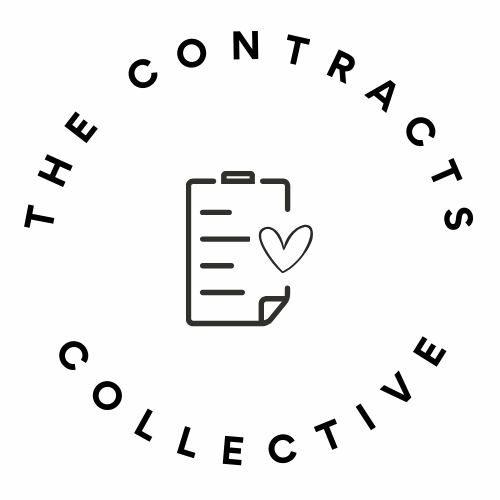Women in small business can find themselves overwhelmed with information but unsure about where to start to get legally protected. So, we’ve stripped things back to the basics to bring you this simple list we think will help you get started with your new small business.
Here’s our top pick of legal documents for new start ups:
- Service agreement (if you’re providing a service) or eCommerce terms and conditions (if you’re selling goods) – manages your delivery of services of sale of goods online to customers.
- Website terms of use – provides rules for visitors using your website.
- Privacy policy – tells customers how you use, store and collect their personal information.
First off, you’ll want a service agreement that protects you when delivering your services to customers. Not a service provider? If you’re selling physical goods, try our eCommerce terms and conditions to protect you when selling goods to customers.
If you operate a website (which, let’s be real, is almost everyone these days) you’ll want website terms of use to cover how visitors can use your website.
And, finally – you can’t go wrong with a best practice privacy policy to tell your customers how you’ll manage their personal information like a pro. Watch out, though – if you’re a health care provider or a small business that meets the criteria, you’ll need a Privacy Act compliant policy.
Why women in small business should use a service agreement
A service agreement is a legal document that contains your agreement with clients about what services you’ll provide in exchange for payment.
As a woman in small business, it’s good to have one because:
- It gets everyone on the same page about what you’ll do, when you’ll do and how much you’ll do it for – this limits arguments about scope, gets you paid on time and prevents the timeline from blowing out.
- Gives you written evidence about what you agreed – happen to disagree about something? You’ve got a clear document that says what you agreed to – no digging through emails and texts to prove your point.
- Protects you legally – there’s specific clauses that can protect you in a way you that you wouldn’t be without an agreement. These include limits of liability (caps on legal responsibility), disclaimers (what you do and don’t do), exclusion of warranties (stops people saying you agreed to something that you didn’t).
- Builds trust and confidence with your clients – having your legals sorted sends the message to your clients that you’re professional and organised – which is a great part of building your professional reputation and giving clients confidence in your work.
What if I sell goods not services?
eCommerce terms and conditions are used in the online sale of physical goods to customers. These terms are different to a service agreement, so if you offer goods and services, you’ll need eCommerce terms as well as a service agreement. Keeping these separate means that your terms won’t be too lengthy or confusing.
eCommerce terms also deal with how delivery will work (including when you stop being responsible for the goods when they’re delivered) and will contain important disclaimers about goods (think safety and use of the product).
Why do women in small business need website terms of use?
Website terms of use are an important tool to keep your business safe, especially if you have a blog, or if you share information about goods or services on your website. They also protect your valuable intellectual property (no copy and pasting here!).
Website terms of use tell visitors how they can and can’t use your website and can protect you from people relying on your information as advice. If you offer free discovery calls or a free consult, expectations and scope for these calls can also be covered by your website terms of use.
Does your small business need a privacy policy?
While most women in small businesses won’t need to have a privacy policy, it can be a great way to build trust with your customers by being transparent about how you collect, store and use their personal information – something that has become more important than ever before. You might like to consider a best practice privacy policy – an affordable way to signpost to your customers that you’re legit.
If you’re a health care provider (think allied health provider, doctor, gym owner, Pilates or Yoga instructor, etc) you’ll need a privacy policy that is compliant with the Australia Privacy Act. If you’re unsure or want to learn more, you can also visit the Office of the Australian Information Commissioner.
We’ve taken the hard work out of meeting your privacy obligations by designing a special Health Care Provider Privacy Policy for allied health professionals. Are you a NDIS service provider? Check out our article about why you need a service agreement.
Still unsure?
One of the most common things I’ve heard from women in small business is that they don’t know what they don’t know. There’s absolutely nothing to be ashamed of – this is a safe space to learn, and we’d love to talk you through what’s right for your business.


